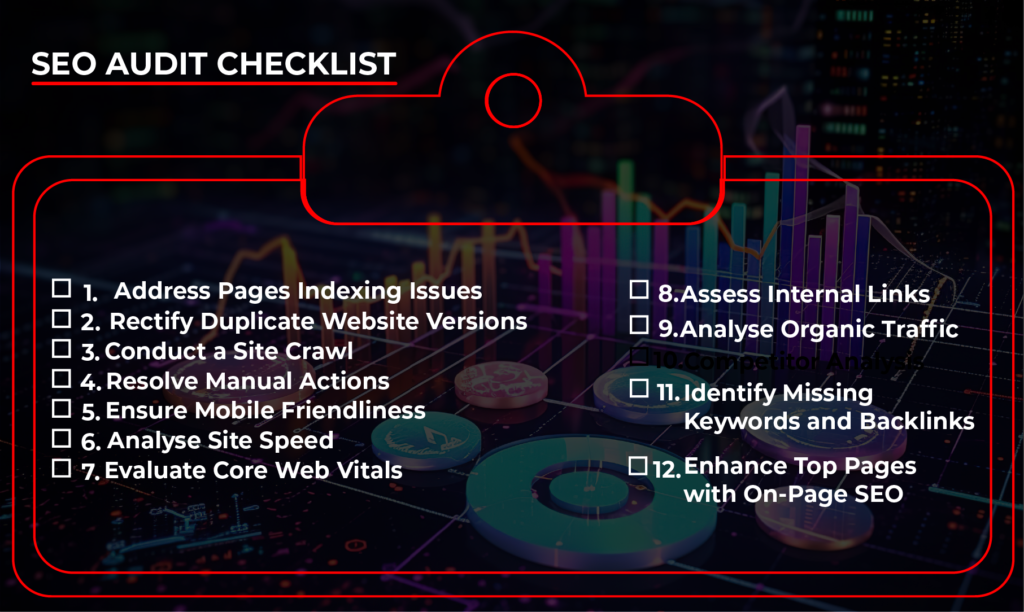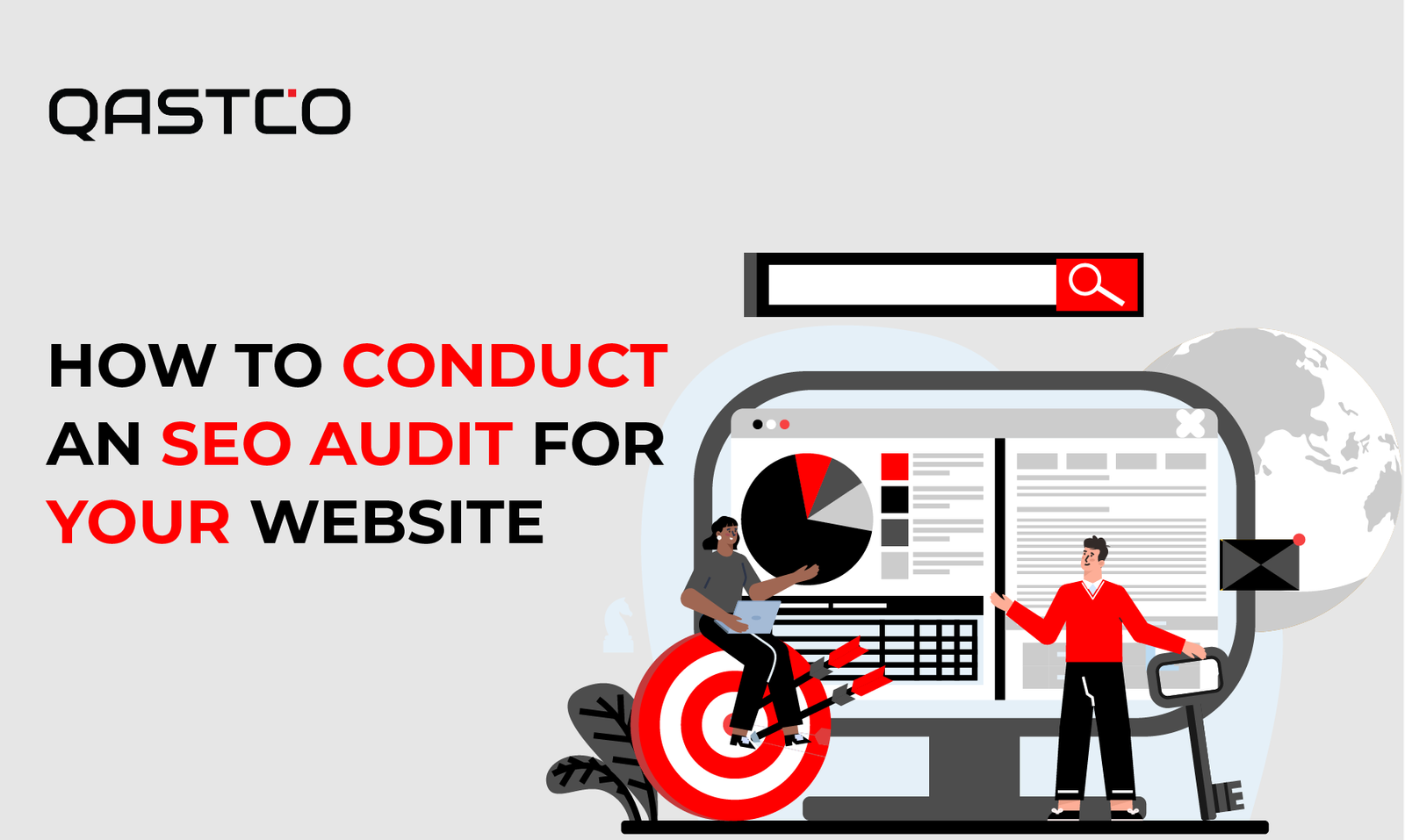SEO has a vital part to play in content marketing. Following the completion of the initial On page SEO, for any website to maintain SEO optimisation. Businesses need to conduct SEO audits on a continuous basis. This enables businesses to gain insights into their keyword rankings and areas of improvements. Working in these areas help to optimise web ranking. The free Search Engine tools, such as Google Search Console, enable businesses to track their keywords and also gauge their SEO performance of their sites, in addition to enabling the comprehensive reporting of web audits.

SEO is not about content marketing alone as it significantly improves the performance of the website. This also enables the website to rank high on the Google search and proper SEO audits will not only hone the existing SEO strategies but they will also help in other ways too.
How to Do an SEO Audit of Your Website
Different tools for conducting site and SEO audits are available to users, such as Google Search Console, Google Analytics, SEMrush, Ahrefs, and others. The following guide provides the basic steps to perform an exhaustive SEO audit for your website:

Address Pages Indexing Issues:
Begin the SEO audit by checking whether all pages are indexed. Only indexed pages are able to rank. By employing the Google Search Console, businesses can find the status of indexing their pages, identifying any issues with indexing and resolving them.
Rectify Duplicate Website Versions
Google indexing is optimally performed with one version of a website. Thus, multiple versions of a website listed may affect ranking, indexing, and SEO performance. Before any redirecting can be done, consider all versions of a website you have access to and select the primary version. This is fundamental to the proper assignment of redirects. A site audit also benefits from this step by improving ranking and indexing efficiency.
Conduct a Site Crawl
A site audit should simulate a Google crawl. Once it does, you will be able to recognize as many issues as Google would. Most site audit tools will show you the site’s health. This audit of site’s health includes errors, notices, issues, and warnings affecting your site. This information is invaluable to an optimal performance improvement and to a strengthened SEO, with which you must start immediately.
Resolve Manual Actions
Notification of manual action from Google results in a violation of the spam policy causing the site’s rank to deteriorate until the matter is addressed. Spam is often caused by unnatural internal linking, keyword stuffing and posting low-quality content. Consulting Google’s manual action guide in Search Console helps quickly fix such an issue.
Ensure Mobile Friendliness
Make sure your website is mobile friendly because all websites need to be optimised for mobile since Google uses mobile-first indexing. Check mobile usability in Google Search Console to improve mobile-related issues and enhance SEO.
Analyse Site Speed
Analysing the speed of a website is crucial, in SEO audits because websites that load slowly tend to have visitors leaving quickly. Using tools for site audits helps businesses find and fix issues related to speed, which in turn improves loading times and user satisfaction.
Evaluate Core Web Vitals
Google’s updated measures for user experience require looking into factors like Largest Contentful Paint (LCP) First Input Delay (FID) and Cumulative Layout Shift (CLS). Utilizing tools such as Google Search Console assists, in pinpointing and resolving problems related to these metrics.
Assess Internal Links
Internal linking plays a role in SEO as it helps with crawling and navigation on websites. By using site audit tools to analyse links businesses can fix any issues related to internal links ultimately boosting their websites authority and SEO impact.
Analyse Organic Traffic
Assessing traffic gives insights into the effectiveness of SEO strategies. Monitoring traffic trends through tools like Google Search Console and Search Results empowers businesses to make informed decisions to optimise their SEO efforts.
Competitor Analysis
Examining competitors with the help of site audit tools provides information on SEO tactics. By comparing metrics such as authority scores, keywords traffic and backlinks businesses can refine their SEO strategies for improved performance.
Identify Missing Keywords and Backlinks
Identifying missing keywords and backlinks is made easier, with keyword gap and backlink gap tools. This strategic approach helps enhance keyword targeting, increase site authority and ultimately improve SEO effectiveness.
Enhance Top Pages with On-Page SEO
Identify Top pages on your website and try to improve them with the help of on-page SEO techniques. One of the main things to consider is keyword optimization that will boost the number of clicks on this page and improve its rankings as much as possible.
Monitor Rankings Continuously
To evaluate the performance of SEO, it is crucial that tracking rankings should be done continuously. Employing ranking-tracking tools enables businesses to monitor keyword rankings, SERPs, and competitor rankings so that optimization can be continuous throughout and also ensures a high-performing website.
In conclusion, SEO audit is very crucial for optimising website performance and ranking. To be competitive in the search engine rankings, businesses need to take into account all important aspects and metrics of their websites.

For comprehensive SEO audit services, businesses can consider engaginng digital marketing service providers to ensure effective implementation.


Leave a Reply
You must be logged in to post a comment.